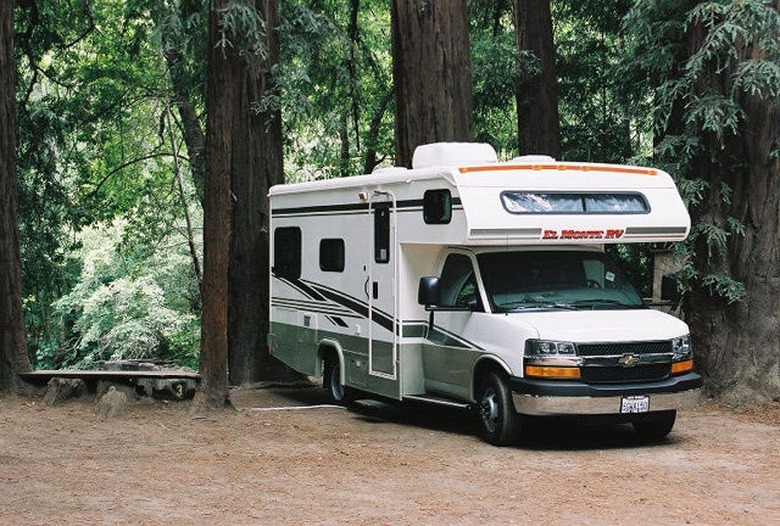How To Live Off The Grid In An RV
It's not all that unusual to talk to folks who say they wish they could get back to nature and live in the wild. There is something to be said for watching the sun rise over the horizon rather than over the neighbor's house, for breathing in the sweet smell of sage and grass instead of exhaust fumes. And sometimes you have to get away, far away, to enjoy those experiences. You could find yourself in a place without electricity, running water, and yes, without cable television. Don't worry-you can live off the grid in your RV and be perfectly comfortable.
Step 1
Decide where you will be living. You can purchase some property or you can live on public land. It's always nice to have your own little corner of the world, but it's not necessary. In many places in the U.S., you can live off grid on public lands at no charge, although you may be limited to a 14-day stay.
Step 2
Do some research before you jump in the RV and head off for the wide-open spaces. Find out about the climate in the area you're considering. Hot in an RV is really hot; ditto for cold. Figure out how far it is to the nearest medical facility, market and other services. If your health is questionable, living off the grid may not be best for you.
Step 3
Go over the systems in your RV with care to confirm that it will support life off the grid. Make certain the fresh water system is sanitary and that nothing leaks. Check that your black water system (sewer waste) is tight and healthy. Make sure the RV's electrical wiring is not frayed or damaged. Confirm that your propane lines are good (if you plan to use propane).
Step 4
Set your RV up for comfort and practicality off the grid. For example, carpeting often requires a vacuum cleaner; you might want to install wood flooring or vinyl that you can clean with a broom. Get rid of unnecessary stuff so you have room to move in the RV. It's a tight space, and you probably won't have that many guests, so get rid of the dinner service for 12. Seal holes to keep out hot, cold and critters.
Step 5
Fill the fresh water tank with fresh water; add something to purify the water if you haven't used the system in a while. A small amount of chlorine bleach dumped in the holding tank with the fresh water should kill most bugs. Make certain the holding tank for your sewer is empty; if it's not, stop in at a station and dump it on your way out of town. Charge your RV batteries and fill your propane tanks.
Step 6
Set up your little homestead in the lovely spot you selected in step 1.Once you're there, try different layouts of the space to ensure that you're using the shade and light to their maximum benefit. If you own the property and you plan to stay long-term, think about creating a level pad to park the RV on more or less permanently. Also, consider installing a composting toilet so you don't have to fight with the septic system in the RV.
Step 7
Make a regular schedule to refill your systems and pump your sewer-you don't want to run out of fresh water or propane in the middle of preparing a meal.
TL;DR (Too Long; Didn't Read)
Take care of your off-grid environment. Put your waste where it belongs.
Cite This Article
MLA
Morrison, Colleen. "How To Live Off The Grid In An RV" sciencing.com, https://www.sciencing.com/live-off-grid-rv-4475192/. 24 April 2017.
APA
Morrison, Colleen. (2017, April 24). How To Live Off The Grid In An RV. sciencing.com. Retrieved from https://www.sciencing.com/live-off-grid-rv-4475192/
Chicago
Morrison, Colleen. How To Live Off The Grid In An RV last modified August 30, 2022. https://www.sciencing.com/live-off-grid-rv-4475192/
